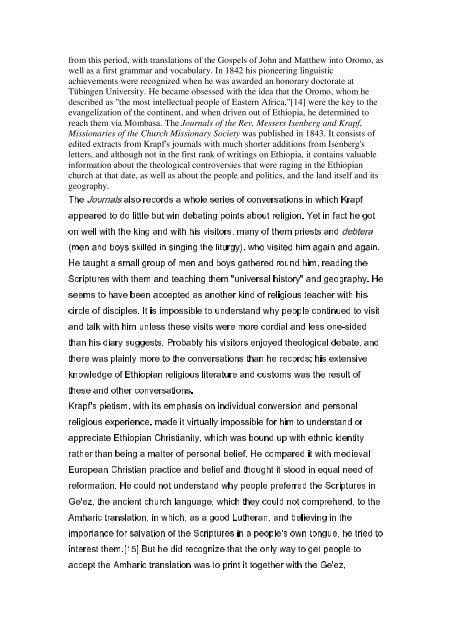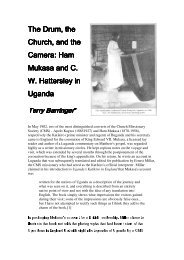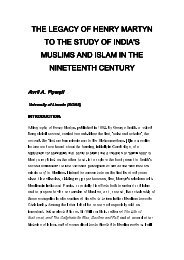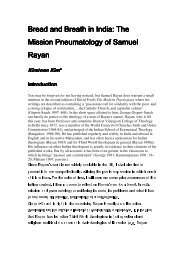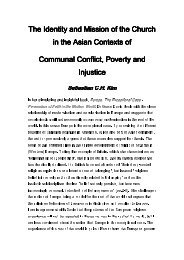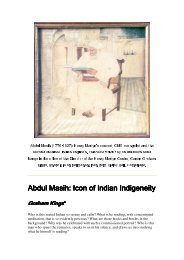The Legacy of Johann Ludwig Krapf - Henry Martyn Centre
The Legacy of Johann Ludwig Krapf - Henry Martyn Centre
The Legacy of Johann Ludwig Krapf - Henry Martyn Centre
Create successful ePaper yourself
Turn your PDF publications into a flip-book with our unique Google optimized e-Paper software.
from this period, with translations <strong>of</strong> the Gospels <strong>of</strong> John and Matthew into Oromo, as<br />
well as a first grammar and vocabulary. In 1842 his pioneering linguistic<br />
achievements were recognized when he was awarded an honorary doctorate at<br />
Tübingen University. He became obsessed with the idea that the Oromo, whom he<br />
described as "the most intellectual people <strong>of</strong> Eastern Africa,"[14] were the key to the<br />
evangelization <strong>of</strong> the continent, and when driven out <strong>of</strong> Ethiopia, he determined to<br />
reach them via Mombasa. <strong>The</strong> Journals <strong>of</strong> the Rev. Messers Isenberg and <strong>Krapf</strong>,<br />
Missionaries <strong>of</strong> the Church Missionary Society was published in 1843. It consists <strong>of</strong><br />
edited extracts from <strong>Krapf</strong>'s journals with much shorter additions from Isenberg's<br />
letters, and although not in the first rank <strong>of</strong> writings on Ethiopia, it contains valuable<br />
information about the theological controversies that were raging in the Ethiopian<br />
church at that date, as well as about the people and politics, and the land itself and its<br />
geography. Journals also records a whole series <strong>of</strong> conversations in which <strong>Krapf</strong> appeared to do little but win debating points about religion. Yet in fact he got <strong>The</strong><br />
well with the king and with his visitors, many <strong>of</strong> them priests and debtera (men and boys skilled in singing the liturgy), who visited him again and again. He taught a small group <strong>of</strong> men and boys gathered round him, reading the Scriptures with them and teaching them "universal history" and geography. He seems to have been accepted as another kind <strong>of</strong> religious teacher with his on<br />
<strong>of</strong> disciples. It is impossible to understand why people continued to visit and talk with him unless these visits were more cordial and less one-sided than his diary suggests. Probably his visitors enjoyed theological debate, and there was plainly more to the conversations than he records; his extensive knowledge <strong>of</strong> Ethiopian religious literature and customs was the result <strong>of</strong> circle<br />
and other conversations. <strong>Krapf</strong>'s pietism, with its emphasis on individual conversion and personal religious experience, made it virtually impossible for him to understand or these<br />
Ethiopian Christianity, which was bound up with ethnic identity rather than being a matter <strong>of</strong> personal belief. He compared it with medieval European Christian practice and belief and thought it stood in equal need <strong>of</strong> reformation. He could not understand why people preferred the Scriptures in Ge'ez, the ancient church language, which they could not comprehend, to the appreciate<br />
translation, in which, as a good Lutheran, and believing in the importance for salvation <strong>of</strong> the Scriptures in a people's own tongue, he tried to interest them.[15] But he did recognize that the only way to get people to accept the Amharic translation was to print it together with the Ge'ez,<br />
Amharic


